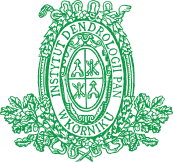Marek Szymajda, Edward Żurawicz, Robert Maciorowski, Kris Pruski
Stratification period combined with mechanical treatments increase Prunus persica and Prunus armeniaca seed germination
Dendrobiology 2019, vol. 81: 47-57
http://dx.doi.org/10.12657/denbio.081.006
Abstract:
The deep dormancy of the Prunus species seeds is caused by the presence of germination inhibi¬tors, mainly abscisic acid (ABA) – in the endocarp, the seed coat and endosperm, and in the embryo. As a consequence, the removal of the endocarp, the seed coat together with the endosperm increases the num¬ber of germinated seeds. The effect of different treatments of seeds of three peach cultivars – ‘Madison’, ‘Elberta’ and ‘Rakoniewicka’, and of three apricot cultivars – M II 42, ‘Bella’ and ‘Somo’, were assessed in terms of seed germination and the growth of obtained young seedlings. Seed treatments involved different duration of stratification period at 5°C and removing endocarp, seed coat with endosperm and the part of cotyledons of the embryo. The best seed/embryo germination, about 96% for the peach cultivars and practically 100% for the apricot cultivars, was obtained by stratifying seeds for 90 days and then removing the seed coat together with the endosperm and subjecting the extracted embryos to a temperature of 20°C. The seedlings obtained from the seeds treated this way have shown good growth. Using these treatments, it was possible to obtain a larger number of apricot and peach seedlings, and thus increase the breeding efficiency of these species.
Keywords: peach and apricot embryo, cotyledon shortening, young seedlings growth, survival analysis, Kaplan-Meier estimator











